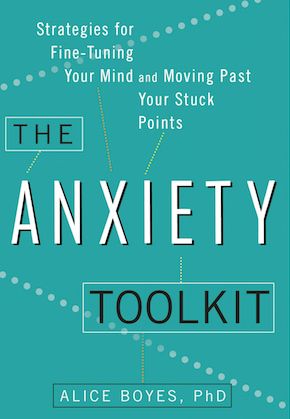Anxiety
7 Tips for How to Feel Less Busy
Try these practical steps to spend more of your time on your own terms.
Posted May 29, 2015

Try these practical steps to spend more of your time on your own terms.
1. Pick a cue for slowing down.
Pick a cue that happens multiple times per day e.g., going to the bathroom. Use this cue to take a few moments of personal time. Claim those moments as your own. For example, take a few slow breaths while sitting on the loo, and/or do a big stretch on entering the bathroom.
2. At least once a day, do something that’s on your own agenda rather than other people’s.
For many of us, there are days that can feel hijacked by doing things urgently that other people need us to do. At least once a day, do something that’s on YOUR priority list. It could be as simple as reading a couple of articles from a magazine.
3. When rushing doesn’t save you time, don’t rush.
What could do you do at a relaxed pace that wouldn’t really add any time vs. doing that activity at a rushed pace? Are there some activities where rushing ends up taking you more time due to screwing things up?
4. Reclaim relaxed waiting time.
What activities do you do where waiting is inevitable e.g., the line at Trader Joes. How could you enjoy this waiting time and use it as an opportunity to pause, rather than getting anxious and uptight over the waiting?
What mental skills would you need to feel relaxed during these waiting periods? You’d need acceptance skills, but you might also need curiosity for enjoying the people watching aspect. Sometimes there is something pleasant about the waiting that you can savor e.g., being in cool air con.
5. Make eating sacred time.
Bolting down your food is a sure way to leave you feeling like you have no control over your time. Have a personal policy that you won’t keep working while eating. Even if you’re just sitting at your desk, you could listen to podcast while eating rather than continuing to work.
6. Set a bedtime routine.
We all know that little kids need a wind down routine or it’s hard to get them to sleep. This principle applies to adults too. Start your wind down routine a couple of hours before you expect yourself to fall asleep. I’m not saying you have to turn off all electronics at this point. See what works for you. For example, I still check email before I go to bed most nights, but I stop talking on the phone or having other forms of social interaction a couple of hours before bed.
7. Do less task switching.
You’ll feel excessively busy if you’re always switching from one task to another. Figure out how you can give tasks the block of time they need, without task hopping.
Some people find they can use low brain power tasks as a “reward” for when they’ve finished something that requires a lot of concentration.

Dr Alice Boyes is author of The Anxiety Toolkit (Perigee/Penguin Random House, 2015).
Subscribe to her blog articles and receive the first chapter of the book free.
Twitter: @DrAliceBoyes


